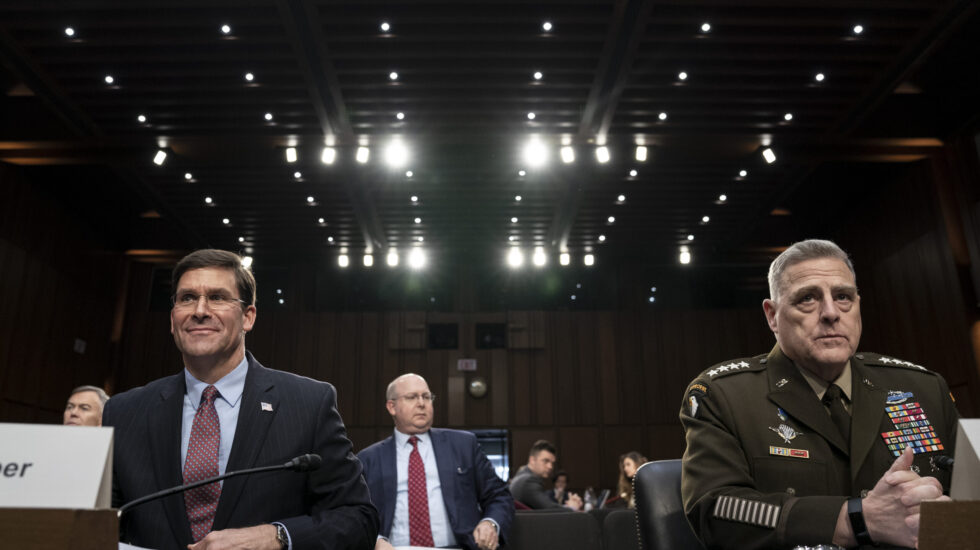On Tuesday, multiple outlets previewed “Peril” – a forthcoming book by Washington Post reporters Bob Woodward and Robert Costa – that makes a series of jaw-dropping revelations about the final months of the Trump presidency. Among the most startling is how close the United States and China came to war in late 2020. On Wednesday, new reporting from Axios added details from the perspective of top Pentagon officials.
“Peril” describes the near conflict through the actions of Gen. Mark Milley, the chairman of the Joint Chiefs of Staff, who twice reached out to his Chinese counterpart, Gen. Li Zuocheng of the People’s Liberation Army, to secretly assure him that the U.S. was not planning an attack despite Trump’s increasingly hostile rhetoric about the country he blamed for COVID-19 and weaknesses in the American economy.
The Chinese were reportedly receiving intelligence that the U.S. was readying for war. That intelligence was faulty, but Trump’s increasingly erratic behavior had the Chinese on edge.
Axios picks up the story from the perspective of then-Defense Secretary Mark Esper:
Esper directed his policy office to issue a backchannel message to the Chinese to reassure them the U.S. had no intention of seeking a military confrontation. The message: Don’t over-read what you’re seeing in Washington; we have no intention to attack; and let’s keep lines of communication open.
These backchannel communications were handled a couple of levels below Esper, one of the sources said. U.S. officials involved thought the Chinese received the initial message well. Milley followed up later in the month with a call to his Chinese counterpart to reiterate the message, two of the sources confirmed.
Axios reports that Esper delayed a long-planned military deployment to Asia, because “the last thing the Chinese needed to see at that moment — when they were already misreading Washington’s intentions — was more planes.” This reporting echos the claim in “Peril” that Milley suspended a training exercise in the Pacific that might raise alarms in China.
It’s unclear if anyone in the Trump White House was aware of the backchannel or efforts at the Pentagon to appease the Chinese.
Milley is set to testify before Congress on September 28th. Axios reports that he intended to defend America’s frenzied withdrawal from Afghanistan, but the new revelations about his extraordinary efforts to temper Trump will now likely dominate Milley’s Capitol Hill appearance.
Axios writes that Milley “may face some of the most hostile questioning of any modern four-star general.”
A statement from Senator Marco Rubio, a Republican from Florida, previews the potentially combative testimony: “General Milley has attempted to rationalize his reckless behavior by arguing that what he perceived as the military’s judgement as more stable than its civilian commander,” Rubio said, calling that “a dangerous precedent” that “threatens to tear apart our nation’s longstanding principle of civilian control of the military.”
GOP lawmakers are particularly irked by the perception that Milley was an unnamed source for “Peril.” The book reveals details that seemingly only he would know. It also reports that Milley believed Trump’s mental state deteriorated after he lost the 2020 presidential election and that he could not be trusted with the nuclear codes.



